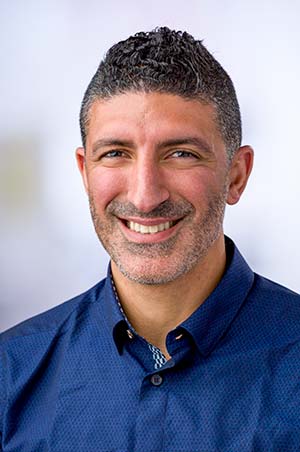Cyrus Ghajar, PhD
Professor
Public Health Sciences Division, Fred Hutch
Professor
Human Biology Division, Fred Hutch
Member
Translational Data Science Integrated Research Center (TDS IRC), Fred Hutch
Peter S. Lefkarites Memorial Endowed Chair
Fred Hutch
Dr. Cyrus Ghajar researches metastasis, or the spread of cancer cells to distant sites, and how the microenvironments of these sites (including bones) can put cancer cells to sleep – or wake them up. During the early days of tumor formation, disseminated tumor cells, or DTCs, often break away and travel through the bloodstream to distant areas of the body. If they stay asleep, or dormant, these DTCs remain harmless. But if (or when) they wake up – which may happen months, years or even decades after a patient receives early-stage treatment such as chemotherapy – they can create metastatic tumors that are resistant to treatment and eventually kill the patient. Dr. Ghajar studies how the microenvironments within distant tissues regulate DTC dormancy and/or growth and whether these niches convey to dormant DTCs resistance to chemotherapy and immunotherapies. He believes that solving these puzzles will allow the development of drugs that eradicate dormant DTCs before they can develop into full-blown metastases. He conducts this work within Fred Hutch’s Laboratory for the Study of Metastatic Microenvironments.
Research Interests
Dr. Ghajar directs the Laboratory for the Study of Metastatic Microenvironments (LSM2). The goal of his research program is to understand how microenvironments within distant tissues regulate dormancy, growth and drug resistance of disseminated tumor cells (DTCs), and whether these niches convey chemoresistance to dormant DTCs. His belief is that solving these puzzles will allow the development of therapeutic regimens that eradicate dormant DTCs before they can develop into full-blown metastases.
"Why not find a way to make therapy…more effective? We want to prevent [patients] from looking over their shoulder in five or 10 years, wondering if the cancer’s going to come back."
— Dr. Cyrus Ghajar
